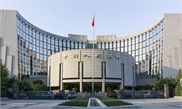Housing market cooled down during the Golden Week holiday
Areas sold for newly built commercial housing in key cities down by 33% y-o-y: report

Cranes are seen at a construction site of a housing complex in Beijing on Thursday. Photo: VCG
Housing companies placed high expectations on the just-past National Day holiday that started on October 1, often dubbed as the Golden Week. A variety of discounts, lottery promotions, loans with favorable terms and other preferential measures were offered in the sales offices across the country to boost purchase volumes.
However, the overall market turnover of most cities is the lowest in many years during the 7-day holidays, data from realtor Centaline Property revealed.
Analysts said that the industry is expected to pick up in the fourth quarter, tapping into pent up demand.
The current cooling down is mainly due to the effectiveness of upgraded real estate financial regulation, or three "red lines" as outlined by China's top market regulator aiming to avoid excessive financing, as well as tightened property purchasing policies China has implemented to guarantee stable and sound development of real estate industry on the principle that "houses are for living in, not for speculation." Meanwhile, the industry is gradually facing saturation.
Fewer transactions
Considering that the current inventory is relatively high and the real estate regulatory policy has become stricter, the demand is being suppressed. And affected by the centralized management of real estate loans by banking financial institutions, the payment cycle of real estate enterprises is longer, thus making the real estate industry under short-term pressure, according to a research report by China Lianhe Credit Rating Co.
The transaction areas for newly built commercial housing in key monitored cities decreased by 33 percent during the Golden Week compared with the same period in 2020, with buyers' willingness to dip into the market softer than expected. The market sentiment continued the wait-and-see trend in September, according to statistics published by the China Real Estate Index System (CREIS).
First-tier city transaction volume is basically flat year-on-year, while the second-tier, the third-tier and fourth-tier cities are down more than 40 percent on a yearly basis, per CREIS.
"In the first half of the year, we secretly opened sales of some of the properties in popular areas, in view of the huge crowd that would gather at the sales offices. Now, some real estate developers are selling properties quietly because they want to slash prices," a real estate agent surnamed Xu based in Beijing, told the Global Times on Sunday.
She further revealed that half a year ago, buyers had to pay a deposit, usually 10,000 yuan ($1,552), that is not refundable to hold a property, with good units typically fought over by multiple buyers.
There is no need to be overly pessimistic for the current real estate market, as recent credit policy can be considered to have ushered in an inflection point, Yan Yuejin, research director at Shanghai-based E-house China R&D Institute, told the Global Times on Friday.
"Although the move to lower interest rates is not obvious at present, banks are expected to increase quotas in the fourth quarter, which is clearly helping to support market trading volume. At the same time, under the control of a number of policies in the third quarter, purchase demand is obviously weaker and wait-and-see mood has become prevalent.
"With the arrival of the fourth quarter, housing demand across all areas will likely be released, which will also help to clear inventory for developers and agents," said Yan.
Analysts also said that the decrease in the heat of the real estate market is also related to the effect of the national housing policy, which has curbed most of the real estate speculation and left the pure housing demand.
The real estate market is near saturation in China. By September, second-hand housing stock waiting to be sold on the market totaled more than 3 million dwellings, according to a report from E-house China R&D Institute.
Over the next two years, the construction area of newly built commercial housing will reach 3.77 billion square meters. Assuming 100 square meters per set, there will be 40 million unsold apartments in China's real estate sector in the next two years, per E-house China report.
China's urban home ownership rate reached 96.0 percent in 2019, data released by the central bank in April 2020 showed.
Chain reaction
A buyer surnamed Wang, told the Global Times on Sunday that she had bought a house from Evergrande in Central China's Henan Province, which was supposed to be settled in 2021 but has been delayed.
Wang suggested that people who want to buy a house in the future should choose a property firm that has not and will not go beyond the three so-called "red lines."
A buyer who had bought an Evergrande unit in Zhanjiang, South China's Guangdong Province, said that the property had not resumed construction after being suspended for more than three months. "I have been waiting for two years for the house scheduled to be delivered by October 31," she said.
At present, consumers from all over the country have set up dozens of online chat groups, in order to urge the developers to resume work on half-finished buildings, the Global Times learned.
Buyers of Evergrande properties are also worried about a potential property management issue.
"Now I am worried that the real estate will change property management company, which will affect the subsequent sales," a buyer surnamed Li, who has got her Evergrande house in Kunming, Southwest China's Yunnan Province in 2020, told the Global Times on Sunday.



